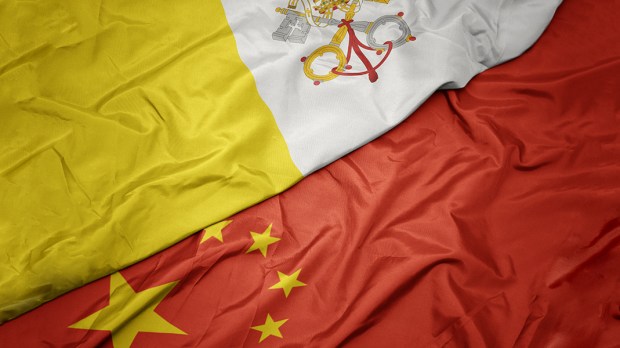If there were an “openness on the part of the Chinese,” Pope Francis would go there “immediately,” Cardinal Secretary of State Pietro Parolin told journalists on the sidelines of a conference in Rome this June 20, 2024. The Vatican’s No. 2 said that the Holy See was working to improve the agreement—under fire from critics—concerning the appointment of bishops in mainland China.
Dialogue continues
When asked by the press about the state of relations between China and the Holy See, the Cardinal Parolin replied, “We are dialoguing as we have been for some time.” He went on to explain, “We are trying to find the best procedures also for the application of the Agreement […] which will be renewed at the end of this year.”
The signing of this agreement on the appointment of bishops in China in 2018 marked a significant rapprochement between Rome and Beijing. But the agreement, the terms of which have remained secret, remains controversial to this day, with some observers not hesitating to judge that it had not served the interests of Chinese Christians.
Pope Francis taking steps to improve relationship
Pope Francis “has a great appreciation indeed and does not miss an opportunity to express it towards the Chinese people and the Chinese nation,” Cardinal Parolin also said, explaining the Argentine pontiff’s interest by his Jesuit heritage. The Jesuits are the congregation that evangelized China.
Since the beginning of his pontificate, the Pope has fostered a closer relationship between the Catholic Church and Xi Jinping’s China, despite complex and sometimes tense relations. At the general audience on June 19, he publicly paid tribute to the Chinese people, “this noble people, so courageous, who have such a beautiful culture.”
“Certainly these are all steps that help to understand each other more and more, to get closer and closer,” he stressed, expressing the hope that “this path can lead to a positive conclusion.”
A possible visit?
As for a possible trip to China by the 266th Pope, Cardinal Parolin considered the prospect premature, even if Francis “is willing […] indeed he wishes to go to China.” “If there were openness on the part of the Chinese, the Pope would also go immediately,” he added.
The Shanghai Synod anniversary
At Rome’s Urbaniana University, Cardinal Parolin presented a book on Cardinal Celso Costantini (Il Cardinale Celso Costantini e la Cina – Costruttore di un ponte tra Oriente e Occidente, by Mgr. Bruno Fabio Pighin, published by Marcianum Press). The Italian cardinal was one of the architects of the Concilium Sinense, the Catholic Church’s first and only synod in China, also known as the “Shanghai Synod,” held in 1924. The Church is celebrating the centenary of the synod this year.
Pope Benedict XV called for the Shanghai Synod his apostolic letter Maximum Illud (1919), and it took place in the spring of 1924. The goal was to accelerate the autonomy and penetration into Chinese society of a Church then run entirely by foreign missionaries, and to remove it from the influence of foreign powers.
On May 21, the Holy See organized a seminar attended by Bishop Joseph Shen Bin, President of the Chinese Bishops’ Conference (not yet recognized by the Vatican) and Bishop of Shanghai. In a video message sent to seminar participants, Pope Francis stressed the importance of Chinese people being “in communion with the bishop of Rome,” so that they can truly contribute to the good not only of Chinese society, but more broadly, to the “social coexistence” of peoples.



